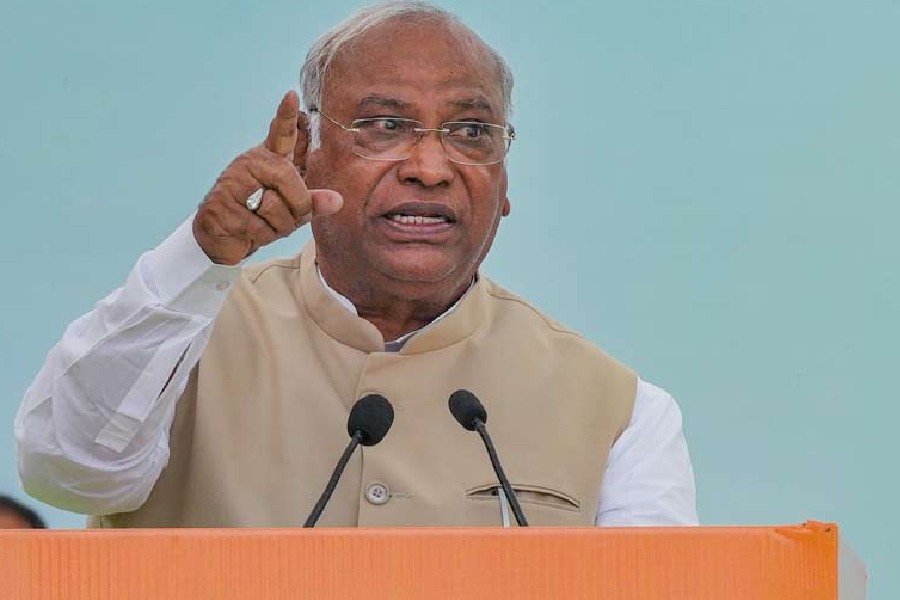The Congress has suggested that the high-powered committee looking into the "one nation one election" idea should itself be dissolved as the office of a former President was being misused to subvert democracy.
The committee, headed by former President Ram Nath Kovind, had sought the Congress’s views on October 18 last year. Congress president Mallikarjun Kharge said in his reply: “For the sake of maintaining a thriving and robust democracy, it is imperative that the entire idea must be abandoned and the high-power committee dissolved.”
The Congress called the exercise of consultation a “pretence”, saying the Narendra Modi government had already made up its mind.
Kharge wrote to the committee secretary: “There is no place for the concept of simultaneous elections in a country that has adopted a parliamentary system of government."
Kharge added: "Such forms of simultaneous elections that are being floated by the government go against the guarantees of federalism contained in the Constitution. The government and this committee should have been honest in stating at the outset that what they are attempting goes against the basic structure of the Constitution.”
In a remark that is bound to be seen as a critique of Kovind, who demonstrated flexibility by accepting the job of heading this committee after occupying the highest office of the land, Kharge said: “On behalf of the Congress party and the people of this country, I humbly request the chairman of the high-level committee not to allow his persona and the office of former President to be abused by the Union government to subvert the Constitution and parliamentary democracy.”
Describing the committee as biased because it is packed with sympathisers of this government, Kharge wrote: “Firm views in support of the proposal have already been expressed in public and a dispassionate analysis of pros and cons is not being attempted in a serious and systematic manner.”
Objecting to the argument that frequent elections affect governance, he said: “The development process and governance are being brought to a standstill frequently because the Prime Minister is actively involved in electioneering rather than governance.”
He also rejected the argument about financial savings, saying: “The expenses make up less than 0.02 per cent of the total Union budget for five years. We feel the people will be willing to consider this small amount as the cost of free and fair elections to uphold democracy.”
Bringing up the question of election funding, he said: “The expenditure on 2014 elections was Rs 3,870 crore which the committee claims is high. The BJP has received donations of Rs 10,122 crore during 2016-2022, out of which Rs 5,271.97 crore is through anonymous electoral bonds. If the committee, government and the Election Commission of India are serious about the expenditure made on elections, it would be more appropriate if they could make the funding process more transparent."
He argued that a substantial part of the increase in election expenses is due to the introduction of VVPAT machines, but the slips are not counted to corroborate with the EVM results. Regarding the attempts to synchronise state elections with the parliamentary one, Kharge said: “The Constitution nowhere authorises the Union government to dissolve the Assemblies or suspend the state governments, except under the emergency clauses. The holding of simultaneous elections would require the dissolution of several legislative assemblies which are still halfway (or less) through their terms. This would be a betrayal of the electorate in those states.”
He said: “If a chief minister loses the confidence of the House and no other party can form the government, the Niti Aayog report says the state should be put under the President's Rule until the fresh elections can be synchronised. This would be a travesty of democracy. Suppose simultaneous elections are held in 2024 and the central government is defeated in February 2025, and the Prime Minister calls for fresh elections. Will all the Assemblies be also dissolved and simultaneous elections held throughout the country?”











